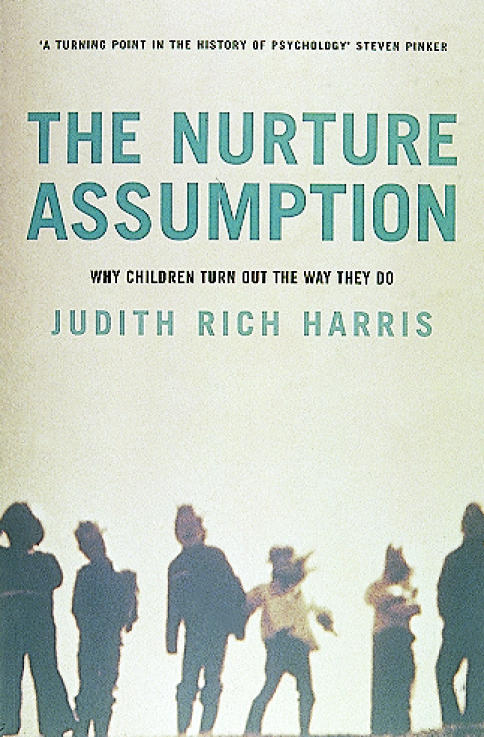Judith Rich Harris
Bloomsbury Publishing, £9.99, pp 473 
ISBN: 0 7475 4894 3
———————
Rating: ★★
In an age when it is virtually impossible to browse in a bookshop or pass through a supermarket checkout without being bombarded by various types of literature on how to parent your children, it is indeed timely and to some extent refreshing to read a book dedicated to propounding the theory that what parents do doesn't matter. What matters, according to Judith Rich Harris, other than any genetic influence, is a child's peer group. She postulates that the role of parental upbringing has no influence on a child's personality or, in her words, “how the children ultimately turn out.”
Much of the book is dedicated to challenging the traditional notions and theories relating to the parental influence on a child's development from various theoretical standpoints such as psychology, anthropology, behaviour genetics, and sociology. Notions such as that the early attachment patterns of a child, propounded in Bowlby's classical theories, will form a pattern of interaction that will be a template for later relationships, and the Freudian psychoanalytical theories regarding childhood development come in for particular scrutiny and criticism.
While it seems that many of Judith Rich Harris's early notions for wishing to challenge the “nurture assumption” have come from her thoughts about situations and anecdotes from her own childhood and experiences as a mother, there is disappointingly little rigorous scientific justification for her assertions regarding the fundamental importance of peer relations in being the crucial factor in a child's later personality characteristics.
This book is entertaining and thought provoking, although its style is somewhat irritating at times. It is unfortunate, however, that one set of views that has been so important in our society's current thinking about child development—that parents have a crucial role in formulating their children's personality—should apparently have been replaced so readily by another set of assumptions. Perhaps it would have been more judicious not to totally throw out the parents with the bath water.


